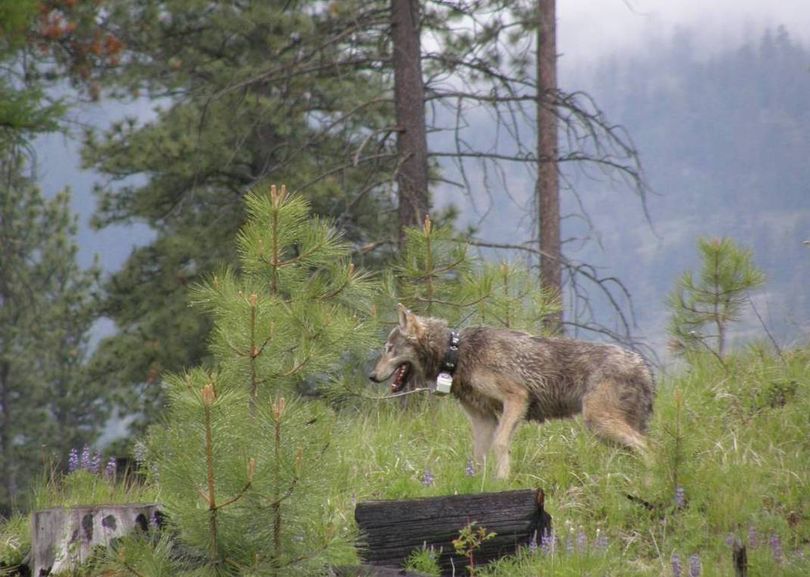Colville Tribe expands wolf hunting off reservation while pro-wolf groups wail

ENDANGERED SPECIES – While animal advocate groups write letters and court the media and public for more "transparency" in managing Washington's recovering wolf population, Native Americans are expanding their options for wolf hunting.
Animal groups seem to go frantic every time a wolf is threatened or removed for killing livestock, as though wolves are sacred. State and federal endangered species rules protect wolves but make provisions for managing animals that threaten people or livestock.
The Tribes aren't bound by state and federal rules and can hunt wolves under rules set by their tribal wildlife officials.
Wolf experts and recovery advocates say limited hunting of wolves is necessary in the long run to make sure wolves maintain their wariness of humans.
- Read this story featuring five wolf experts world-wide who, while working to protect wolves, agreed that limited wolf hunting would be in the best interest of the wolves.
Animal advocates stumped the media and generated a lot of press in the past week, including Northwest Public Radio and the Seattle Times, for demanding that the Washington Department of Wildlife provide the public details of wolf management activities virtually in real time.
Here's the deal: Wolf management shouldn't be reduced to a play-by-play like a tennis match. Pro-wolf groups' claims that killing a wolf here or there will ruin pack dynamics and set back wolf recovery have been proven false. Hysteria and headlines might make their "donate now" buttons light up, but it doesn't serve the future of wolves meshing with humans on public and private land.
The same day that wolf-lover campaign was released last week, the Confederated Tribes of the Colville Reservation approved wolf hunting for tribal members in land off its reservation in northeast Washington state. Since 2012, the tribe already has allowed a wolf hunting season on the reservation within Washington, where wolf hunting otherwise is prohibited.
This is not a slaughter. Last year, the tribe reported one wolf being killed by a member who shot the wolf incidentally while he was hunting deer. The quota of wolves tribal members can kill during the Aug. 1-Feb. 28 seasonson the reservation is three.
The tribes on Thursday voted to expand wolf hunting in land north of its reservation to the U.S.-Canada border, on mostly national forest lane where the tribes retain hunting and fishing rights. The quota on the "north half" of the tribes' territory is three wolves a season.
Colville Tribal Fish and Wildlife Director, Randy Friedlander, says creating regulated seasons ensures tribal members have the opportunity to legally shoot a wolf if encountered at certain times of the year, the Seattle Times reported.
Critics worry that increasing the hunt will lead to more poaching and trapping, which is highly debatable. It could be just the opposite.
Meanwhile, other groups including cattlemen applauded the move as a way to reduce livestock kills.
